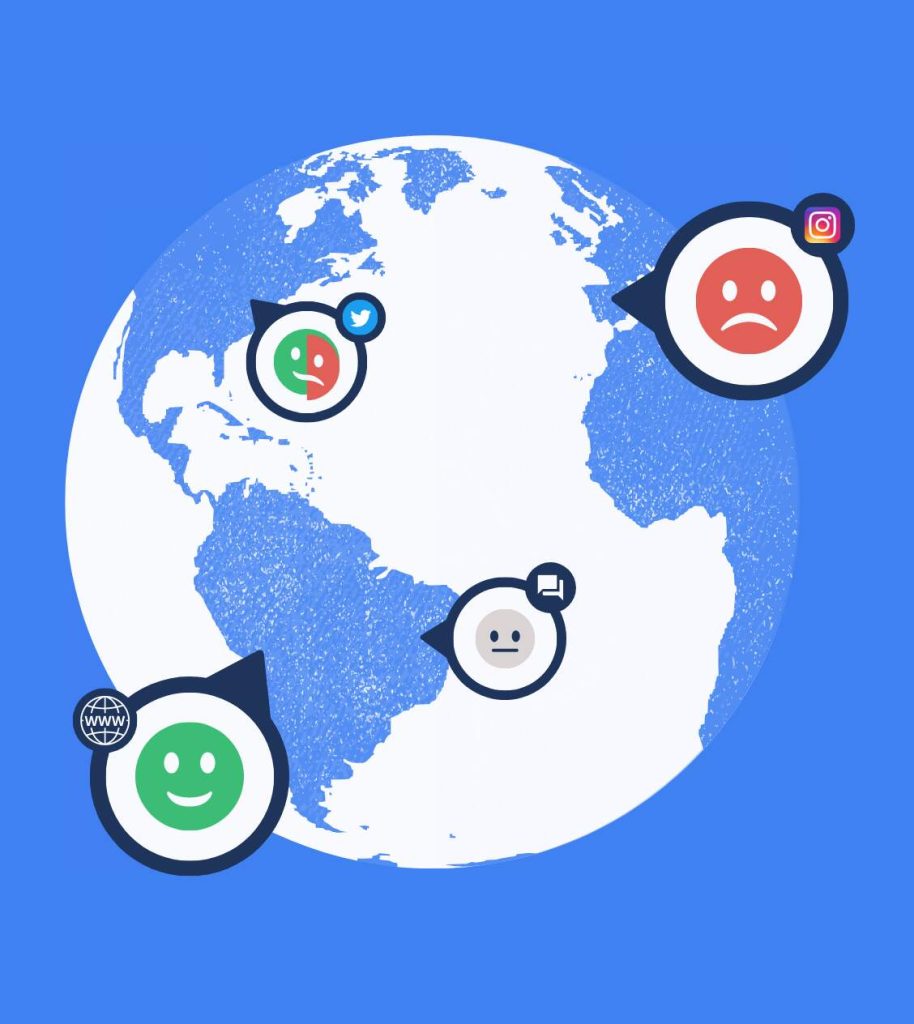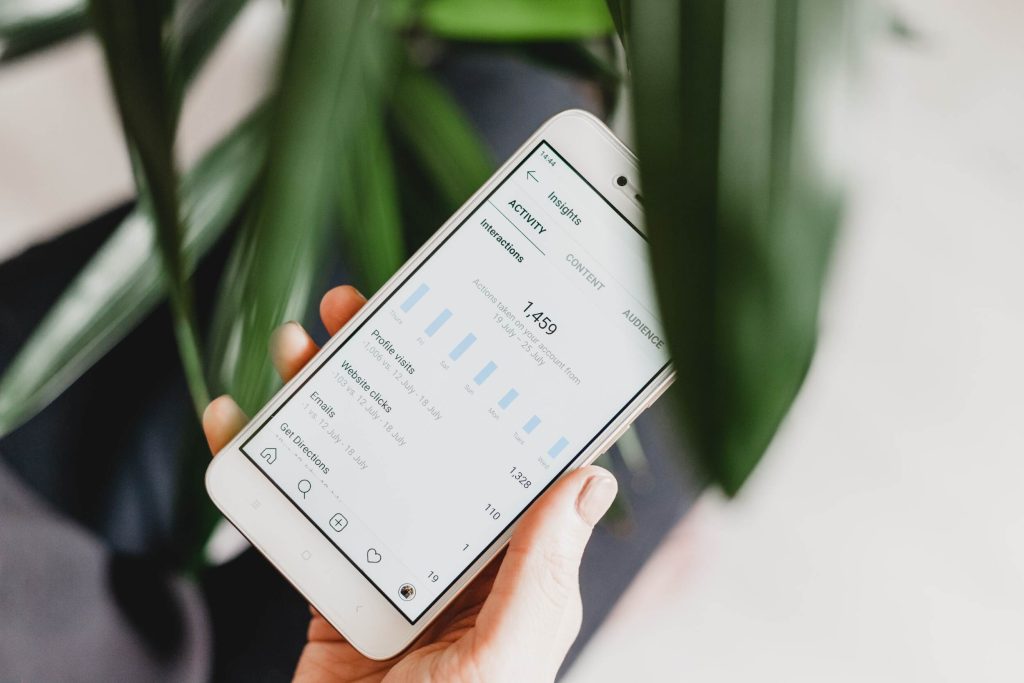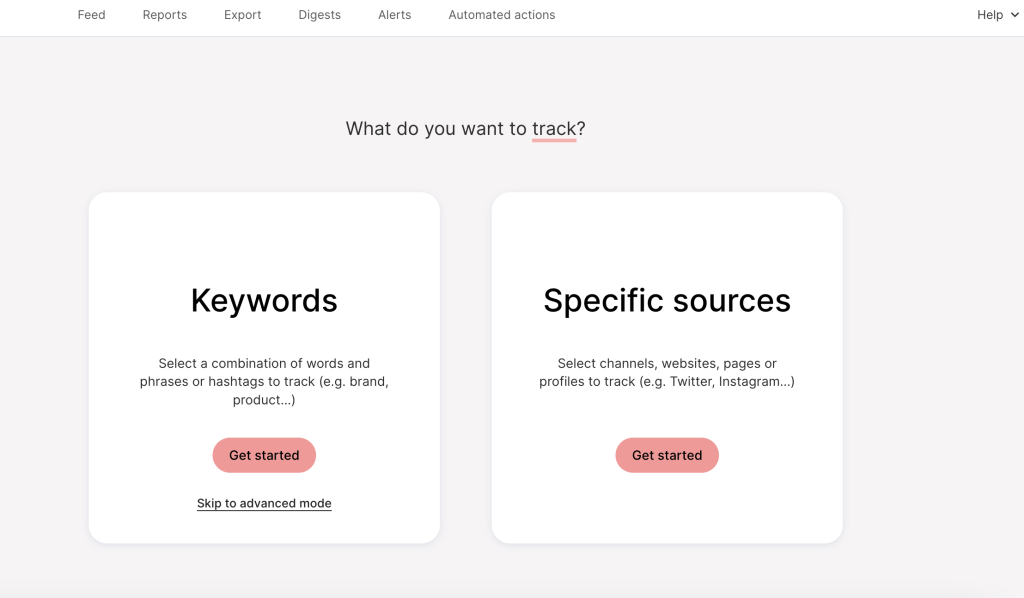We’ve all been there before. You have a question, and the first thing you do is google it. And this might give you an answer to whether you should use cream in carbonara (the answer is no) but might not give you an answer about your brand or audience.
💡 Read Media Monitoring: The Ultimate Guide
You might be surprised to learn that there are better, more efficient ways to get information. One of those ways is media monitoring. Contrary to many people’s beliefs, media tracking doesn’t just mean watching the news. It’s much broader than that.
What is media tracking, and why do you need it?
If you have never heard of media monitoring before, let’s give you a quick rundown.
Media tracking systematically collects, analyzes, and reports on your company, brand, or campaign information. It can include clipping articles, tracking online news sources, or observing social media conversations.

Media monitoring is needed to understand better what’s being said about your company or organization and which emotions it evokes.
It can help you stay informed about any potential negative publicity that could impact your reputation and keep track of any positive coverage that might be worth highlighting.
How Does Media Tracking Differ from Google Searching?
Media monitoring goes beyond Google search by tracking social media channels for specific keywords (e.g. best content software), company names, or topics. You choose what you want to watch out for and can get the results constantly, without your effort. It also includes services that help you analyze the conversations happening online.

Google search is excellent for finding publicly available information on the Internet, but it does not track all conversations on social media platforms.
Also, Google search results are not always accurate or up-to-date. Media tracking platforms help you find all of the relevant conversations happening online so that you can stay informed and responsive.
Tip! In Determ, you can get real-time notifications to be always on top of the things happening around your brand. You can set up where you want to get the alerts – to your Slack channel, Determ app, or email.
How Much Time Does it Take to Google and Get Actual Relevant Results?
A lot.
To filter all the results that come up in search engine results, you need a tremendous amount of time and effort. Furthermore, you will get similar results every time you monitor them – and you won’t be able to sort them out.
So it’s like a never-ending story, every time, you’ll see the same results in the SERP (or maybe slightly different), and it will be hard for you to find the latest positions because they won’t rank high enough yet.
Sure, you can do a Google search now and then to see what comes up. But that’s not going to give you the big-picture view of how the general public perceives you.
Moreover, Google does not automatically detect the sentiment of the source and does not allow you to filter the results. It also does not prepare the report for you. Media monitoring tools do, which makes for a clear choice.

Nevertheless, you should not entirely abandon Google search, but the media tracking tool should be the basis for your further conclusions here.
Examples of Media Tracking in Use
Would you like to know how media monitoring platforms and Google can work well together? If so, read on.
Find mentions that you would otherwise miss
One of the advantages of using a media tracking platform is that it can help you find mentions of your company or brand that you would not have discovered with a simple Google search.
The reason could be that they were published on a website that Google does not index, or they were shared on social media platforms that are not covered by Google search.
By using a media monitoring platform, you can be sure to capture all of the relevant conversations happening online about your company or brand wherever they may appear. Did someone mention you on Twitter? No problem – the social media tracking tool will detect it.
Thus, googling a brand and then using Determ to find mentions that can’t be spotted (especially on social media) is the best way to ensure that you haven’t left anything out.
Track the latest news and stories about your brand
Google search and media monitoring tools can help you keep track of the latest news and stories told about your brand. You can see what they’re saying about you and whether the conversation is positive or negative.
Activating real-time alerts lets you know when a tracking tool discovers an increase in activity – e.g., people start to mention your brand more frequently.

This way, you can quickly address any potential crises before they become a bigger problem. If you receive a notification, you can take action immediately, and this works well if you want to be one step ahead of your competition.
So take advantage of that, monitor news and stories about your brand or industry, and then use Google to investigate these topics further.
Get a closer look at your audience
By monitoring the media, you can also understand your audience better. You can track the language and words that they use to describe their needs and desires, or your brand and products. This information can be extremely helpful when it comes to developing marketing campaigns and products.

Do targeted searches for influencers
By finding the people talking about your brand or industry, you can identify potential partners or collaborators.
You can also track how various types of influencers mention your brand, giving you an idea of which kinds of influencers are more likely to be effective in promoting your brand.
Determ provides you with an influencer ranking, letting you see who’s most active and who most frequently mentions your brand. In this section of Reports, you will find the top 10 influencers sorted by:
- Most frequent source
- Virality
- Reach
- Interactions
What Else Can Media Monitoring Do For You
These are just a few examples of media tracking in action. But the possibilities are endless. Here is a quick summary of the benefits of media monitoring.
Increased visibility
Monitoring can help you shine a light on your brand or organization. When you’re constantly looking for ways to get your name out there, being proactive about media monitoring can give you a leg up against the competition.
Ability to track your competition’s moves and strategies
Keeping tabs on your competitors’ activities is essential for any business. Media monitoring can help you learn how they do that and what strategies they use to succeed. And avoid repeating their mistakes!
Read more: Competitive Analysis: All You Need to Know
Improved accuracy of information and timeliness
The speed of the internet means that information can change in an instant. Being able to rely on accurate, up-to-date information is essential for any organization. A monitoring tool can help you achieve this goal.

Faster identification of potential crises
Crises can happen at any time, and it’s essential to be prepared. By monitoring the media, you can quickly identify potential situations and take steps to mitigate them.
Read more: 4 Ways to Improve Your Crisis Communication Strategy
More comprehensive and diverse coverage of news stories
The more information sources you have, the better. Media monitoring gives you access to a wide range of news stories worldwide, in different languages.
How to Get Started With Media Tracking
The whole process is pretty straightforward. If you want to try out whether a media monitoring tool is a solution for you, check out Determ’s free trial.
It’s ideal for beginners because it won’t take long to implement, and its simple and well-designed interface will make it easy to grasp its potential.
To keep it short:
- Join the Determ family.
- Click “Start tracking” and set up the topic (it can be your brand name, campaign hashtag, or your competitor’s name). As soon as you set up a topic, Determ starts monitoring over 100 million online sources, both on the web and social media.
- You will automatically see mentions in your feed. To customize your results, click the “Edit filters” button in the toolbar on the top of the mentions feed.

Media monitoring tools track additional information when your keywords are mentioned, including author, location, time of publication, sentiment, reach, interactions, engagement rate, and influence score.
You’ll quickly discover how to create reports, set up real-time alerts, and get the most out of this tool (don’t hesitate to use Determ’s tutorials and knowledge base).
To Sum Up
Although Google is a powerful search engine, it can’t always give you the most complete or accurate results.
Suppose you’re serious about tracking the latest news about your brand and developments in your industry. In that case, you should stop relying solely on Google and start using a dedicated media monitoring tool instead.
Such a solution makes it easy to see what people are saying online in real-time. And the best part? It’s affordable and customizable so that you can get the insights that matter most to you.